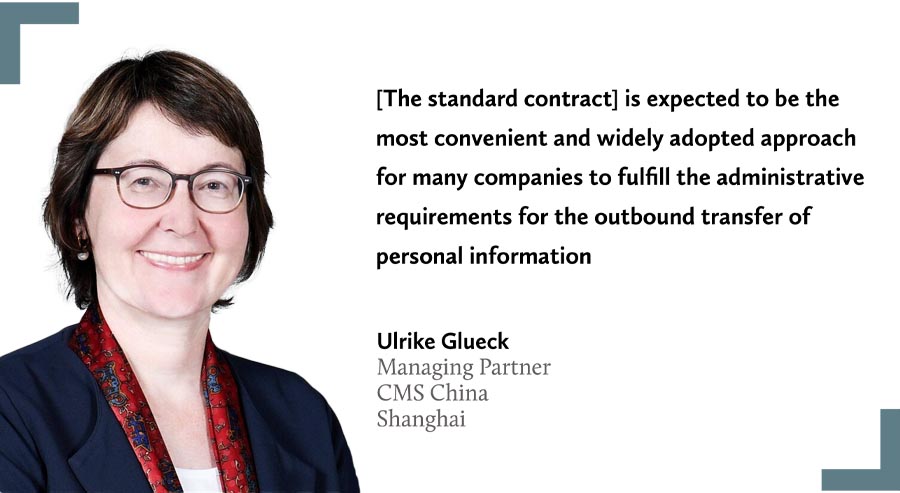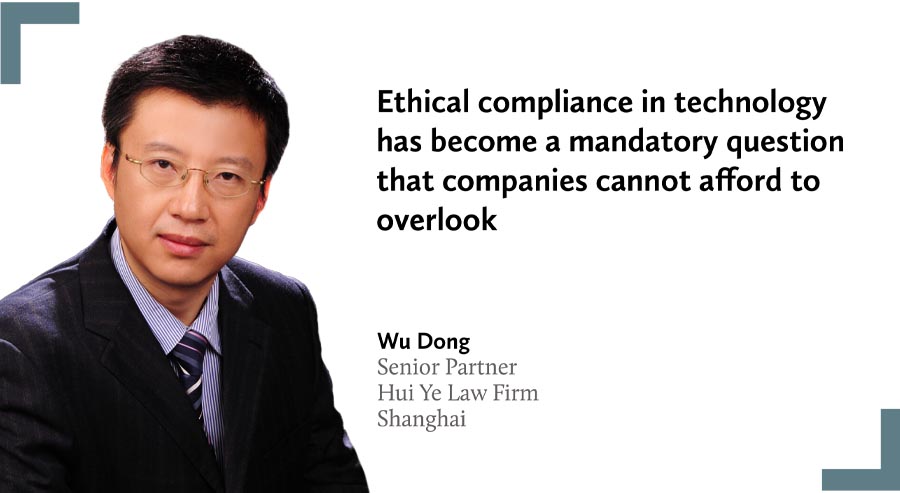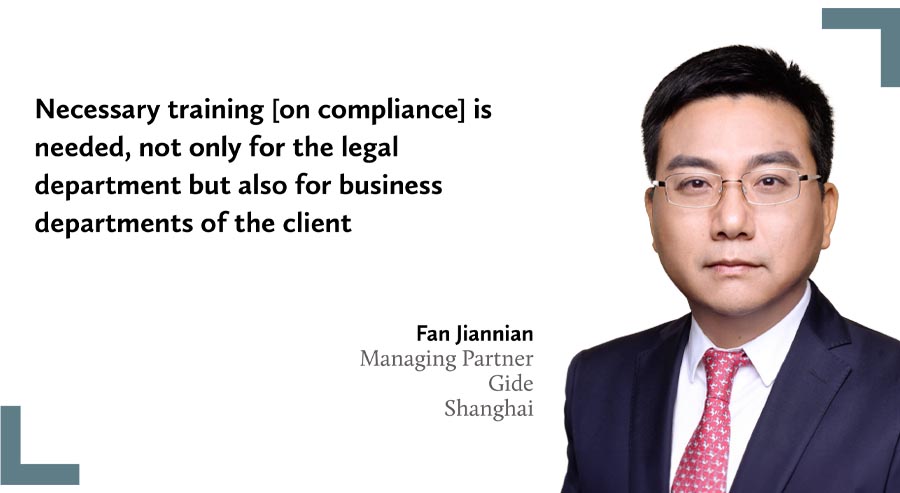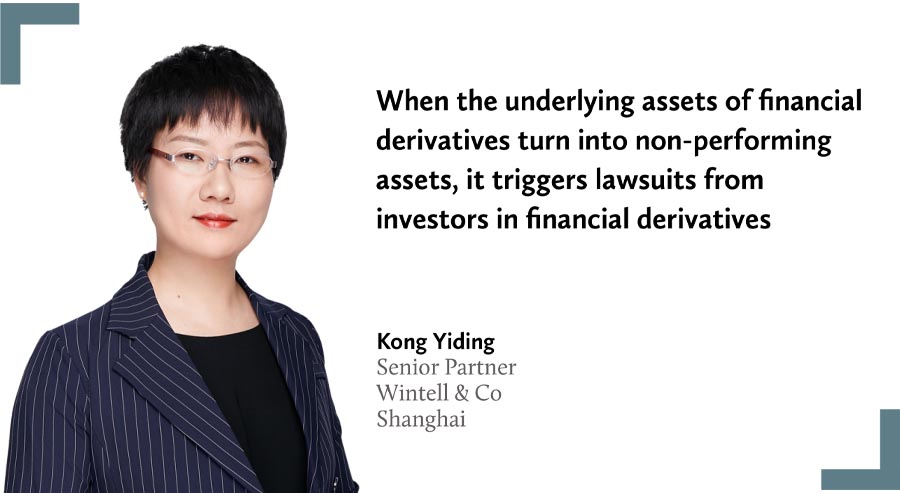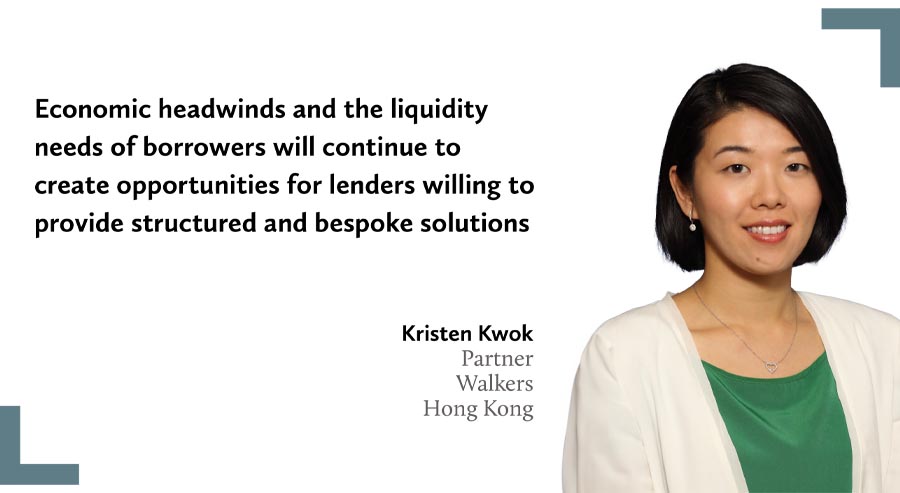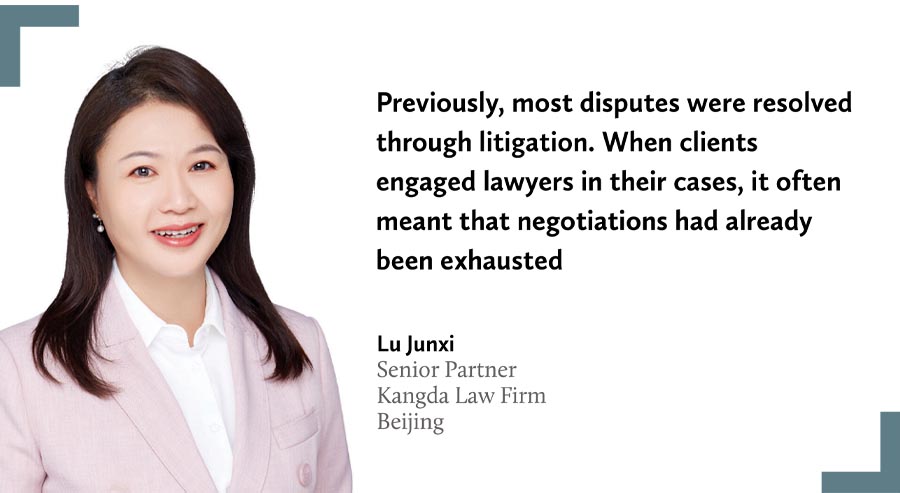With China’s post-pandemic recovery efforts not materialising as expected, businesses find themselves besieged on multiple fronts. Chinese and international law firms offer alerts and tips for navigating this challenging landscape. Luna Jin reports
THE HOLY GRAIL of doing business is taking perfectly calculated risks. While the legal departments have little control over housing crises, China’s deflation, the Ukraine war or even business performances, they play a vital role in influencing board members. They can guide board members to calibrate a company’s risk appetite and to take smart risks to grow – but only if they stay informed themselves.
So, what are crucial concerns that should top the watchlist of general counsel? What stands out amid the multitude of global headwinds and domestic regulatory hurdles? As the country lurches from crisis to crisis, how can companies better prepare for the next unexpected hit? When businesses’ priorities reshuffle and cost control strategies necessitate a budget cut, how should the legal priorities be rearranged under deteriorating market conditions?
We put these questions to managing partners and senior practitioners nationwide from both home-grown law firms and internationals in China Business Law Journal’s annual mid-year market survey. We found universal trends that in-house counsel must closely follow, as well as some unique developments for various sectors and regions.
As skittish as the market may seem, opportunities remain within the macro narratives.
Regulatory tightening
It is on everyone’s lips. China has been taking measures to ensure its national security is not compromised, data is well protected, and fundraising is scrutinised in great depth at home and abroad.
Taking effect on 1 July this year, the newly amended Anti Espionage Law expands the scope of what is considered espionage. It increases penalties and imposes greater responsibilities on organisations and individuals for preventing and combating espionage. The law now covers not only state secrets, but also “other documents, data, materials or items related to national security and interests”.
The authorities’ firm stance and actions include substantial fines, police raids, social mobilisation efforts and intensified censorship. Companies have been quick to react.
Both Chinese and foreign companies are placing greater importance on data and information compliance, says Scott Yu, a Beijing-based equity partner at Zhong Lun Law Firm.
“This is clearly a direct result of the strengthened legislation and enforcement by Chinese legislative and law enforcement authorities,” he says.
While the timing of upgraded data regulation coincides with the tensest period in China’s foreign relations – some may interpret the two as related – the fact remains that China’s data regulatory framework is steadily improving of its own accord, rooted in its own context and origins, and rapidly aligning with international standards.
Based on the data legislation trilogy that China has successively enacted since 2017 – the Cybersecurity Law, Data Security Law, and Personal Information Protection Law – the regulatory authorities have released a series of supporting rules and national standards in a highly concentrated manner over the past 12 months.
In July 2022, the Cyberspace Administration of China (CAC) issued the Measures for the Security Assessment of Outbound Data Transfer and released related filing guidelines two months later. These have declared a strict regulatory attitude and refined the provisions on cross-border data transfer in the above-mentioned three laws.
In February 2023, the CAC introduced the Measures on the Standard Contract for the Outbound Transfer of Personal Information with a template standard contract. They enable companies holding personal information to lawfully transfer it across borders by entering standard contracts with overseas recipients. The measures took effect from 1 June, but allow a six-month grace period.
“They are similar to the SCC [standard contract clause] requirements under the GDPR [General Data Protection Regulation] and are effectively an agreement between the data handler and the recipient relating to handling, storage and deletion, among other areas,” says Zhang Ning, a partner at Morgan Lewis in Hong Kong.
For the same reason, Ulrike Glueck, managing partner of CMS China in Shanghai, says: “It is expected to be the most convenient and widely adopted approach for many companies to fulfil the administrative requirements for the outbound transfer of personal information.”
Specific industries are experiencing a swift expansion of detailed regulatory rules. Artificial intelligence generated content (AIGC) was the first to be regulated, as the central government saw the impact of AIGC on society had just begun.
In July 2023, seven departments jointly announced the Interim Measures for the Management of Generative Artificial Intelligence Services, regulating the rapidly developing AIGC industry through classification and grading, specifying service providers’ obligations and responsibilities during the development stage of data use and labelling, and providing services to users.
Wu Dong, a senior partner at Hui Ye Law Firm in Shanghai, says: “Ethical compliance in technology has become a mandatory question that companies cannot afford to overlook.”
The regulation soon spread to the financial sector. In July 2023, the People’s Bank of China (PBOC) released a draft of the People’s Bank Data Security Management Measures for Business Areas, and solicited public opinions. As the first specialised data security regulation in the financial sector, this draft aims to regulate banks.
Charles Wu, a senior partner at Dacheng Law Offices in Shanghai, says one key client concern is “how to balance between business development and financial compliance issues in the context of strengthened financial regulation”.
To further solidify data management compliance obligations for companies, in August 2023 the CAC started to solicit public opinions on the draft Measures for the Personal Information Protection Compliance Audit, clarifying the triggering conditions, frequency and auditing institutions for personal information protection compliance audits. This means that all companies handling personal information will need to regularly carry out such work, either by self-audit or compulsory audit.
Due to the fast regulatory development, Fan Jiannian, managing partner of Gide’s Shanghai office, suggest clients follow up closely. “Necessary training is needed, not only for the legal department but also for business departments of the client in order to enable them to have a global idea of the requirements and add them to the normal working process,” he says.
Among the intensive and copious requirements and obligations for companies, data-related tasks do have priorities. Yang Jun, the director of Jade & Fountain in Shanghai, says the cross-border transfer of data has been the trickiest issue recently for multinational company clients, “and there has been explosive growth for related legal work for law firms”.
Yu, of Zhong Lun, advises clients to stay vigilant regarding legal changes and implementation, and to hire lawyers to assess risk points in their businesses as early as possible “to avoid undesirable consequences that may arise from hasty responses when significant legal risks become a reality”.
However, the cost of achieving compliance could be hefty, considering data usually involves every aspect of any company’s operation and management.
In this regard, Jessie Zhang, a senior partner at Wintell & Co in Shanghai, suggests companies should take stock of their data flows and cross-border data volumes, “and then choose either a security assessment, adopt standard contracts, or apply for personal information cross-border transfer certifications based on their situation”.
Regulatory rules in capital markets have been developing in parallel with data regulation ever since ride-share company Didi was forced to delist from the US stock market against the backdrop of the central government’s crackdown on the tech sector.
In the absence of clarity on the detailed regulations, overseas listing activities remained sluggish. According to statistics for the first eight months of 2023, most US listings of Chinese companies were extremely limited in terms of the size of the funds they raised. Only one company, HESAI Technology, managed to raise more than USD100 million.
With the market’s eager anticipation, in February 2023, the China Securities Regulatory Commission (CSRC) released the Trial Administrative Measures of Overseas Securities Offering and Listing by Domestic Companies with notes and five supporting guidelines.
The new measures took effect on 31 March 2023, and mean companies seeking overseas listings must make certain filings with the CSRC and complete a review process.
The filing requirements echo the CAC’s revised cybersecurity review measures announced in January 2022, under which companies with data of more than one million users must be reviewed by the CAC before they can sell shares overseas.
In this spirit, “the issue of the equity structure of companies planning for overseas listing is the most frequently scrutinised and closely examined matter by regulatory authorities, with the highest level of attention and detailed verification by authorities,” says Zhang Xiaowei, chair of W&H Law Firm’s management committee in Beijing.
“Companies planning for overseas listing need to comprehensively consider both domestic and international regulatory practices, develop listing plans and paths that are suitable for their own business, and strategically plan the timetable for overseas listing reviews and domestic filing procedures,” he says.
Some companies have chosen to raise funds in European markets via global depositary receipts (GDRs), and new rules have been announced to revitalise the market.
In May 2023, the CRSC published detailed guidance on the registration, filing, use of proceeds and other requirements on overseas offerings of GDRs by Chinese listed companies.
Zhang Liguo, chief partner at Grandway Law Offices in Beijing, says: “The standardised issuance of GDRs helps increase the international recognition of quality listed companies in our country, which is of great significance for their integration into global development.”
As China reformed its capital market regime, the securities watchdog and bourses also increased scrutiny on IPO issuers’ information disclosure with normalised on-site inspections to maintain the quality of listed companies.
The domestic market has witnessed a number of IPO terminations due to their failures during inspections. Other issuers have retracted applications after being chosen for inspection.
Zhang, of Grandway, says that companies planning to go public “need to have a correct mentality towards on-site inspections and recognise that regulatory agencies conduct these inspections not with the ultimate goal of punishment, but rather to conduct a comprehensive examination of the company’s operations”.
Apart from actively co-operating with inspections within the company, he suggests: “They should report to the independent directors in a timely manner and request intermediaries and other organisations to co-operate with the inspection team.”
For any issues raised by an inspection team, “companies should promptly organise special meetings involving relevant departments and personnel, thoroughly review and analyse relevant laws, regulations and related systems, and actively identify the root causes of problems”, says Zhang.
Re-strategising red-hot
While the global community debates whether China’s economy is experiencing a structural recession or just another cyclical downturn, the harsh reality of the latest statistics compel both Chinese and international companies to rethink their strategies. Nevertheless, some view this situation as an opportunity to embark on a fresh start.
The latest National Bureau of Statistics data, released in August, reveals key indicators such as investment, industrial production and retail sales for the previous month. The numbers came in well below expectations, disappointing those who had been anticipating a strong rebound in the country’s economy following the end of its “zero covid” policy.
“After three years of the pandemic, many companies still face cash flow shortages, declining profits, financing obstacles, debt defaults and other challenging situations,” says Wu, of Dacheng.
Many law firm managers have observed major business growth opportunities in restructures and insolvencies.
“Currently, a large number of companies are undergoing bankruptcy reorganisation, with numerous lawyers acting as bankruptcy administrators,” notes Li Ye, managing partner at the Guangzhou headquarters of Advance Law Firm.
The situation is even more challenging for state-owned enterprises (SOEs). Tang Yuzhou, a senior partner at Baijus Law Firm in Chongqing, says: “For SOEs, their development characteristics of heavy assets, pro-cyclical nature and difficulty in adjustment pose risks of falling into a new round of difficulties during economic adjustments.”
Economic influence is significant but changes in international relations also play a crucial role, compelling companies to adapt their geographical operations and industrial layouts.
“Corporate restructuring was active as some multinational corporations were reconsidering their presence in Hong Kong due to tax planning and risk management reasons,” says Rossana Chu, managing partner at LC Lawyers in Hong Kong.
Multiple adversities have put the general counsel to the test on the frontlines of issues such as business downsizing, market exit, relocation and employment. “Large companies are susceptible to the influence of international situations, testing the legal department’s accurate understanding of the overall environment,” says Raymond Wang, a managing partner at Shihui Partners in Beijing and Shenzhen.
Glueck, of CMS China, says many companies are looking for ways to cut costs and implement synergies, and clients want to know what corporate restructuring measures can be adopted, and which is the most suitable, “especially by foreign investors and foreign-invested enterprises in China”.
“Some investors have decided to close their entities in China that are no longer profitable, which results in statutory dissolution and liquidation procedures,” she adds. “There have been commercial disputes involving companies during insolvency liquidation or reorganisation proceedings.”
Defaults of China’s real estate giants are among the top contributing factors of disputes. “We have received numerous enquiries relating to insolvency matters, and advice and preparatory steps for enforcement action, most obviously related to clients with connections to the Chinese property market,” says Colette Wilkins, a partner at Walkers in Hong Kong.
Given the nature of the large number of participants in offshore debt, the actions taken by the various stakeholders have their own priorities. “We have also seen lenders negotiating forbearance and additional security, potentially in anticipation of future enforcement actions,” says Wilkins.
She says investors and managers with investments in funds, which are themselves invested in the Chinese property market, are also facing “issues with fixed return investment structures where the fund assets are insufficient to pay the promised return”, as the overall valuations of these investments change.
The situation has business potential. Wilkins’s firm recently obtained orders for the first appointment of restructuring officers to a Hong Kong-headquartered business under new Cayman Islands legislation.
She expects “more of these appointments if lenders do take a more aggressive approach to give companies in financial distress breathing space to consider restructuring options. There hasn’t yet been a substantial increase in winding up applications and enforcement of security, although we are expecting to see this in the second half of 2023.”
As with the infamous global financial crisis in 2008, disaster in the real estate sector is easily transmitted to the financial sector. “When the underlying assets of financial derivatives turn into non-performing assets, it triggers lawsuits from investors in financial derivatives,” says Kong Yiding, a senior partner at Wintell & Co in Shanghai.
For disputes within the borders, Hu Ke, a Beijing-based partner at Jingtian & Gongcheng, says “the problem of enforcement difficulties may continue to plague many winning parties” due to sluggish market conditions. “In my opinion, while businesses need to put in more efforts in achieving enforcement, they also need to innovate enforcement strategies.”
New trends are appearing in how and when lawyers get involved in the disputes. The pandemic has forced people to re-evaluate external counsel’s role in the game. Lu Junxi, a Beijing-based senior partner at Kangda Law Firm, says there are now more disputes but also more ways to resolve them.
“Previously, most disputes were resolved through litigation,” she says. “When clients engaged lawyers in their cases, it often meant that negotiations had already been exhausted, leading directly to litigation.
“However, after the pandemic, lawyers are increasingly involved in pre-litigation negotiations, even using them as a means to avoid litigation altogether.”
Despite the general doldrums, the situation is also seen as a perfect time for banks, funds and asset managers to reflect and refocus.
Danielle Roman, a partner at Mourant in Hong Kong, says the exit of certain global banks from fund finance has opened opportunities for other market players in the Asia-Pacific region to step in, including as an agency or a collateral bank. “There remains a gap in the market for other lenders to provide innovative financing solutions for Asia’s VC and smaller PE clients,” she says.
The climate also provides a useful opportunity for funds to get more closely involved in the management of their portfolio of companies. “Improving portfolio performance through identifying companies that perform strongly during adverse conditions and capitalising on that advantage could provide a crucial edge,” says Paul Christopher, managing partner at Mourant in Hong Kong.
In addition, he says, “there is now a useful window for GPs [general partners] to consider the effectiveness of their relationships with service providers, potentially leading to changes and a reduction in provider concentration”.
Regardless of the slowdown in fundraising, Kristen Kwok, a partner at Walkers in Hong Kong, says higher interest rates and banks pulling back from certain markets or sectors is giving rise to more opportunities for private credit providers to demonstrate their strengths in a traditionally bank-dominated market.
“Economic headwinds and the liquidity needs of borrowers will continue to create opportunities for lenders willing to provide structured and bespoke solutions,” she says.
Agility is key in IP game
As Chinese companies gain more visibility in global markets, safeguarding brand image and reputation plays a crucial role for them to obtain a competitive edge over international peers.
Li Hui, the chair of the board of directors at Sanyou Intellectual Property Agency in Beijing, has observed a continual growth trend in overseas patent applications from Sanyou’s Chinese clients.
Apart from the needs of business expansion, “this is due to the accumulated demand that has surged after a slowdown in overseas applications caused by the three-year pandemic”, he explains.
Jason Yao, a partner at Wanhuida Intellectual Property in Shenzhen and Hong Kong, also sees the enthusiasm of Chinese companies expanding their presence overseas, “particularly in industries such as new energy, automotive and electronic cigarettes, where their efforts in optimising intellectual property strategies are becoming increasingly active”.
Yao says that in these emerging industries, Chinese companies hold advantages and the domestic market is relatively saturated.
Meanwhile, such efforts are necessary in view of the increase in tariffs and non-tariff barriers imposed by European and American countries on Chinese export products, so that they can establish a global presence in order to mitigate such trade barriers.
Back home, while recent administrative measures by the Trademark Office to combat bad-faith registrations have made a difference, they could also work against companies’ normal and reasonable registrations of defensive trademarks as part of their overall IP strategies.
Li says these measures include rejecting registration applications, issuing administrative penalties and warnings, and placing individuals or entities on blacklists, “which effectively curbed bad-faith practices such as trademark hoarding and free-riding through registrations”.
However, they also affect companies when they file for defensive trademarks to prevent someone else from applying in goods or services unrelated to their own mark.
Li says that in order to avoid defensive trademarks being recognised as bad-faith registrations, companies need to exercise greater caution when registering non-use trademarks. This means controlling the number, frequency and categories of trademark applications within reasonable limits.
When receiving an examination opinion notice identifying a registration as bad faith, “it is necessary to provide sufficient evidence to demonstrate the legitimacy of registering defensive trademarks”, he says.
Further, the latest round of proposed amendments to the Trademark Law could codify such practices. In January 2023, the China National Intellectual Property Administration published draft amendments to the Trademark Law, which may compress the current space for companies’ reasonable applications for defensive trademarks and bring about an additional burden of proof for rights holders in the future.
Yao recommends that clients closely monitor the latest policy directions and legislative trends, study best practices and judicial cases both internationally and domestically, explore the deep-seated policy background of relevant issues, and clarify the underlying legislative logic. “By doing so, we can find the optimal solutions and approaches to specific problems or cases,” he says.
Adopting artificial intelligence (AI) in IP protection seems intuitive, but its impact in the real world for now could still be limited.
Frank Liu, a partner at Shanghai Pacific Legal in Shanghai, says: “While AI has its own advantages that cannot be ignored, we don’t see AI’s own instrumental properties changing for the foreseeable future.”
He says that in the formulation of IP strategies, human effort remains essential alongside AI’s benefits in organising and summarising basic facts. “The decisive work is the process of developing IP strategies for companies based on facts, lawyers’ professional knowledge, and practical experience through meticulous communication with internal personnel, which cannot be replaced by AI.”
You must be a
subscribersubscribersubscribersubscriber
to read this content, please
subscribesubscribesubscribesubscribe
today.
For group subscribers, please click here to access.
Interested in group subscription? Please contact us.






